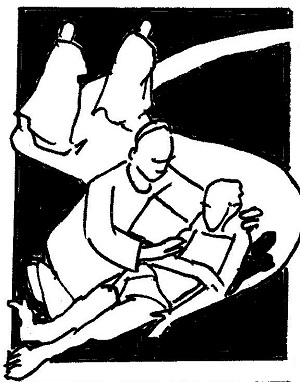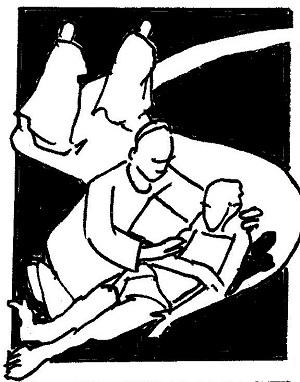

Who is my neighbor?
“What must I do to inherit eternal life?” (Luke 10:25
The brilliance of Jesus’ parable of the Good Samaritan is evident not only in the power of story itself but also in its timeless and universal application.
The question “Who is my neighbor?” receives an answer that will confront every future encounter between all of us and any person in need. In that moment and circumstance, that person becomes our neighbor. If we want to inherit eternal life, we must love that person as ourselves, for this is the first and most important commandment, the Great Commandment that makes love of God inseparable from love of neighbor.
We know the story. The failure of the priest and the Levite to stop and help the victim only heightens the question of who will be his neighbor. The shocking answer is lost on us if we do not imagine ourselves as the victim and our rescuer as the last person in the world we would expect to help us — our worst enemy.
The scholar of the law must have felt that way as the trap he hoped to set for Jesus closes in on him. His desire for a legal definition of neighbor that would set limits to his obligation is made irrelevant by the limitless demands of love when faced with need. Jesus makes him answer his own question. Compassion defines neighbor, both for the one in need of it and the one who shows it. All other distinctions, limits, qualifications and excuses disappear in the encounter between mercy and need. If we want compassion we must be compassionate.
The timeliness of this parable is striking. It brings it into the present moment with the same force of hindsight that makes us hope we would have acted like the Dutch Christians who saved some 500,000 Jews from the Nazis, or that we would have stood up against the internment of Japanese American citizens in the 1940s, or been at Selma to walk for voting rights in the 1960s, or risked our security to provide sanctuary for those fleeing the U.S. funded wars in Central America in the 1980s. If we were there, in each crisis we would have been on the wrong side of the law but on the right side of mercy.
The parable of the Good Samaritan ends with the question Jesus poses for us today, “Which of these, in your opinion, was neighbor to the one who was suffering?” The scholar answered, “The one who showed mercy.” If we answer the same way, then we must go and do likewise.
Advertisement







